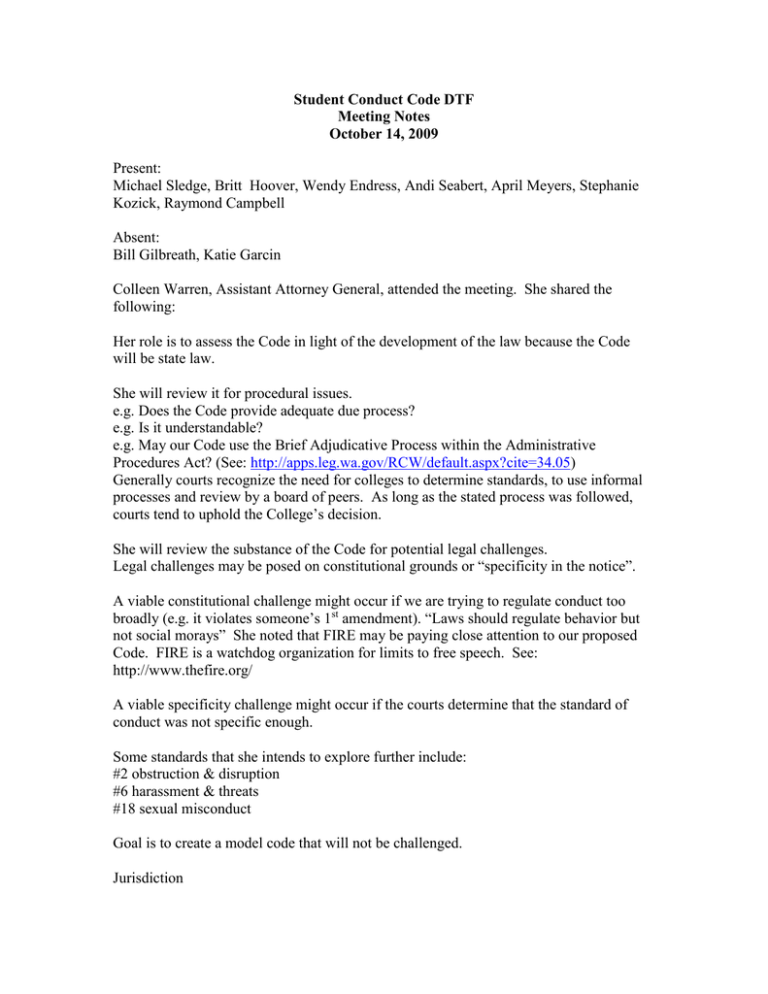
Student Conduct Code DTF
Meeting Notes
October 14, 2009
Present:
Michael Sledge, Britt Hoover, Wendy Endress, Andi Seabert, April Meyers, Stephanie
Kozick, Raymond Campbell
Absent:
Bill Gilbreath, Katie Garcin
Colleen Warren, Assistant Attorney General, attended the meeting. She shared the
following:
Her role is to assess the Code in light of the development of the law because the Code
will be state law.
She will review it for procedural issues.
e.g. Does the Code provide adequate due process?
e.g. Is it understandable?
e.g. May our Code use the Brief Adjudicative Process within the Administrative
Procedures Act? (See: http://apps.leg.wa.gov/RCW/default.aspx?cite=34.05)
Generally courts recognize the need for colleges to determine standards, to use informal
processes and review by a board of peers. As long as the stated process was followed,
courts tend to uphold the College’s decision.
She will review the substance of the Code for potential legal challenges.
Legal challenges may be posed on constitutional grounds or “specificity in the notice”.
A viable constitutional challenge might occur if we are trying to regulate conduct too
broadly (e.g. it violates someone’s 1st amendment). “Laws should regulate behavior but
not social morays” She noted that FIRE may be paying close attention to our proposed
Code. FIRE is a watchdog organization for limits to free speech. See:
http://www.thefire.org/
A viable specificity challenge might occur if the courts determine that the standard of
conduct was not specific enough.
Some standards that she intends to explore further include:
#2 obstruction & disruption
#6 harassment & threats
#18 sexual misconduct
Goal is to create a model code that will not be challenged.
Jurisdiction
- Courts have said that colleges can regulate off campus conduct but there must be a
nexus to the mission. The misconduct addressed must be serious and impact teaching
and learning.
- sexual assault … courts have found a nexus due to concern for safety of victim and
others
- dealing drugs … nexus doesn’t stop the drug dealing at the college boundary
- our current language restricts what the College could address, courts/law would permit
the College to be more broad … are we foreclosing an opportunity to address something
that we may want to?
- current language provides no basis for addressing student’s engaging in civil
disobedience in protest of something


